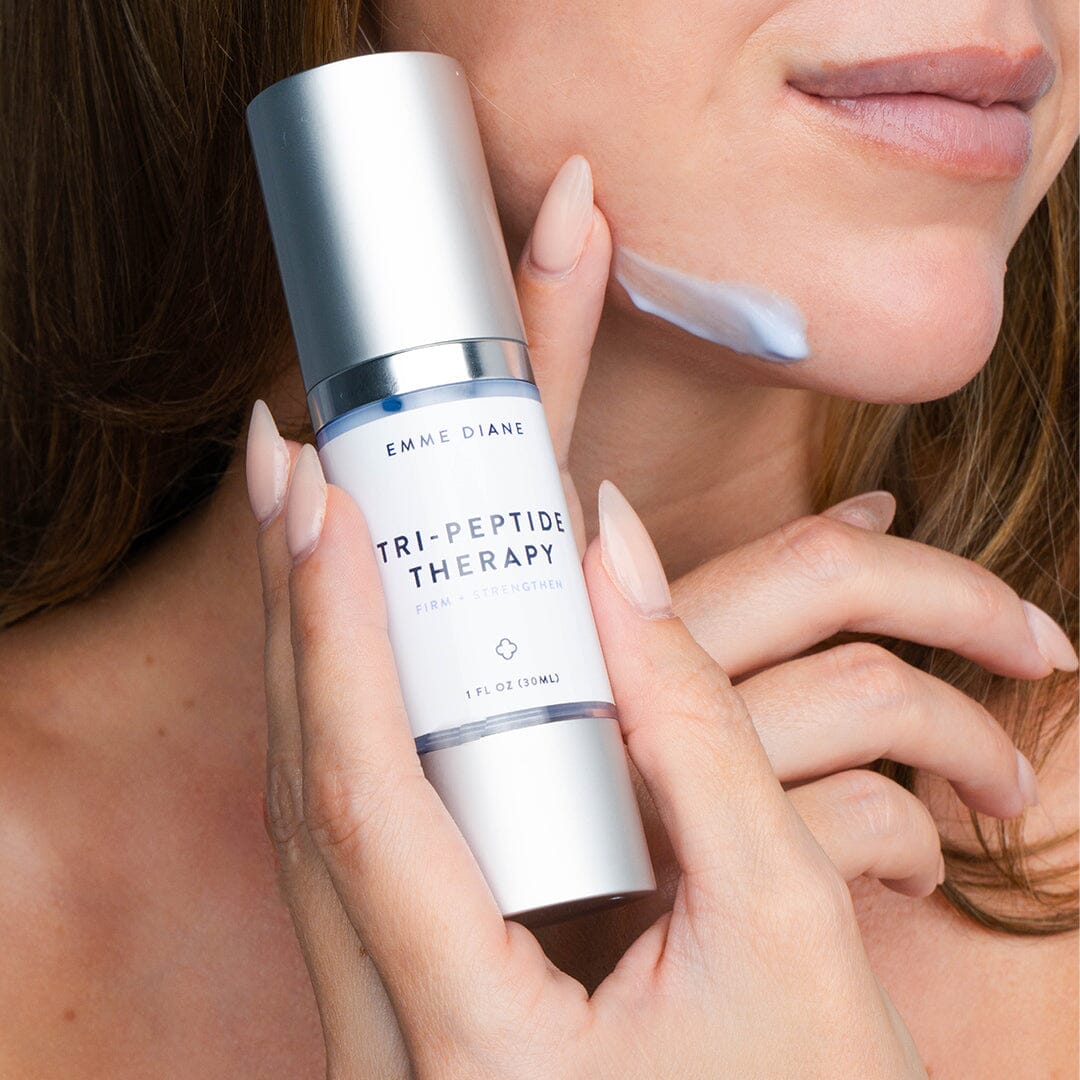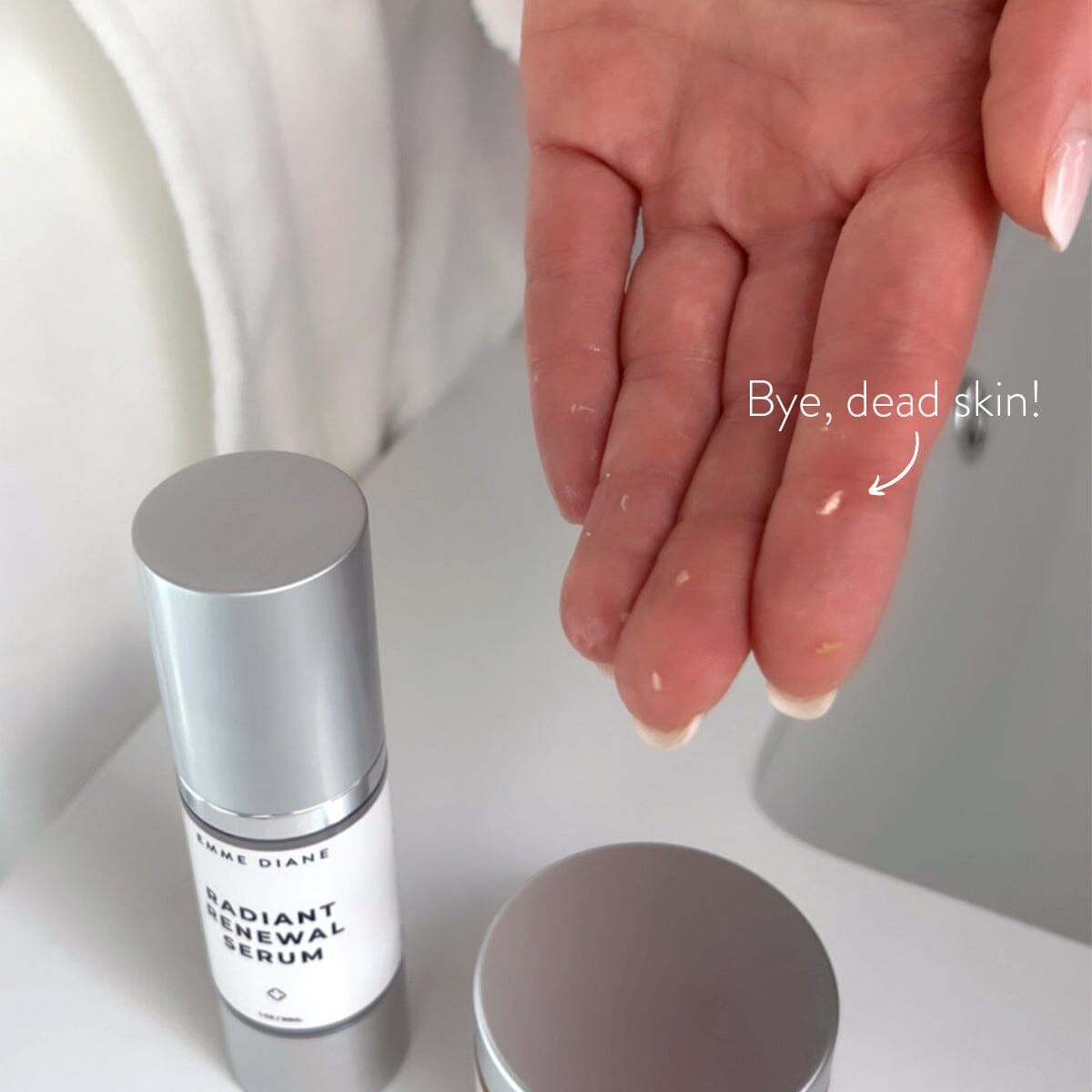The Hormone You May Be Overlooking When It Comes to Hormonal Acne
by Emily Linehan on October 17, 2022
Hormonal acne is becoming increasingly common, which has resulted in more awareness surrounding how hormonal imbalances can affect the skin. In these discussions about hormonal acne, imbalances with Testosterone and Estrogen typically dominate the conversation, however, there is another hormone that is less frequently mentioned but can be just as triggering - Insulin!
What is Insulin?
Whenever we consume a meal or snack, our bodies break down the carbohydrates (a.k.a sugar) and convert them into glucose. The glucose then enters our bloodstream, which causes insulin, a hormone produced in the pancreas, to signal cells to help bring sugar out of the bloodstream and into cells to be used for energy. In addition to it helping to regulate the shift from sugar and fat as an energy source, it also helps to regulate your metabolism.
How Insulin Can Affect The Skin
While Insulin isn’t typically top of mind, it does play a huge part in hormonal acne.
When sugar or high glycemic index foods are consumed, the sugar absorbs very quickly into the bloodstream, resulting in increased blood sugar levels. The resulting insulin spike that occurs causes a burst of inflammation and signals the liver to produce a hormone called IGF-1 (Insulin-like growth factor) to help restore balance to your bloodstream. Unfortunately, IGF-1 also increases testosterone, which results in an overproduction of sticky oil in the pores and excess cell turnover (congestion), contributing to acne breakouts.
In addition, in high-sugar diets insulin levels can become chronically elevated. In turn, this causes the cells to develop a resistance to insulin, preventing it from doing its job. When someone becomes insulin resistant, insulin can no longer regulate blood sugar levels and metabolism properly. This leaves sugar unable to get into the cells and instead is free-flowing in the bloodstream. In an effort to correct this the body turns its focus to insulin and regulating blood sugar instead of hormones, leading to an imbalance of estrogen, progesterone, testosterone, and cortisol levels, all of which can trigger acne breakouts.
Not only is sugar a big trigger for acne, but an overabundance of sugar also causes an inflammatory response in the skin called Advanced Glycation End (or AGE, for short). This inflammation begins when excess sugar molecules attach to the protein in our skin. This attacks our collagen and elastin fibers, which are the tissue that keeps our skin young and firm. This process unfortunately begins to accelerate the aging process, resulting in not only wrinkles but also sagging skin and an overall loss of radiance. Similar to sun damage, the effects of an overabundance of sugar do not appear immediately on the skin. Instead, people typically see the results of high-sugar diets around 30.
Regulating Insulin Levels
Luckily for most people Insulin is one of the easiest hormones to control with quick simple fixes to your lifestyle and diet.
To start, if you're acne prone, it's important to minimize how much sugar you are consuming to ensure that your skin clears and stays clear. It's close to impossible to eliminate refined sugar altogether, but there are substitutes we can make to avoid it as much as possible, such as Stevia (my favorite is Sweet Leaf Stevia Drops) and Monk Fruit. You can find more acne-safe sugar alternatives here.
In addition, it’s important to leave space between meals to allow the insulin levels to rise and fall. This means that instead of snacking or drinking coffee throughout the day, ideally, you will leave 2.5 to 4 hours between meals. If you feel like you need to eat before 2 hours, this could be a signal that your insulin is dysregulated or that you didn’t eat enough.
Lastly, there have been studies that show that the chicoric and chlorogenic acid in dandelion root can improve insulin sensitivity and reduce blood sugar levels, so incorporating this herb (like through drinking Dandelion Tea) could help with insulin disruptions. Just be sure to always consult a healthcare professional prior to starting or stopping any supplements!
xoxo, Emme
Disclaimer: This information is for educational purposes only and does not take the place of medical advice. These statements are not intended to diagnose, treat, cure, or prevent any disease. You should always consult with a healthcare professional before starting any health plan or taking supplements.


